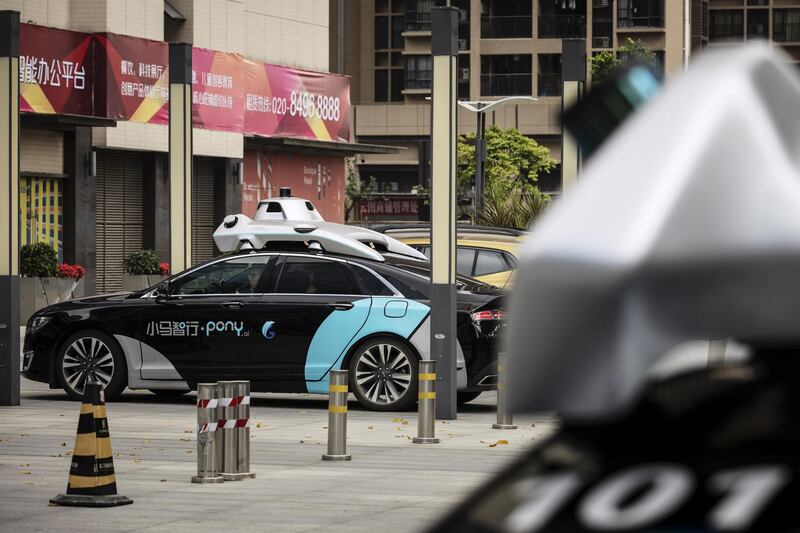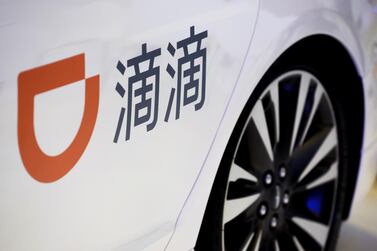Chinese autonomous-driving company Pony.ai struck a partnership with Toyota Motor, a boon for the start-up seeking to take on US rivals such as Alphabet’s Waymo.
Pony.ai and Toyota are teaming up on a pilot project as they attempt to accelerate the development and use of self-driving vehicles, said Pony.ai on Monday. The companies will start the pilot in September on public roads in Beijing and Shanghai, using Lexus RX vehicles and Pony.ai's autonomous driving system, said Toyota spokesman Maki Niimi.
The start-up is among the front-runners in autonomous driving in China, which is getting a late start in the burgeoning field compared with the US. Founded in 2016, Pony.ai had raised about $300 million (Dh1.1 billion) as of April, with a valuation of $1.7bn. It received robotaxi operation permits for California in June, Bloomberg reported.
Toyota, the world's biggest car maker by market capitalisation, is accelerating its push in China through investments in emerging areas such as electrified vehicles and transport services. In July, the company agreed to invest $600m in Chinese ride-hailing company Didi Chuxing, and has also said it would sign on to the Apollo self-driving platform led by Baidu.
Toyota aims to become “a mobility company firmly rooted in China” and will accelerate its business in China via collaboration with many local companies, the car maker said.
Separately, Singapore will this month begin a public trial of self-driving buses that can be booked with an app, part of ambitions to roll out autonomous vehicles across the city-state.
Well-organised and high-tech, Singapore has become a test bed for self-driving vehicles, developing home-grown technology and inviting foreign companies to trial their own, says AFP.
Four self-driving minibuses will follow a 5.7 kilometre route on the resort island of Sentosa from August 26 to November 15 for the public trial, said ST Engineering, the Singaporean company behind it.
Visitors can use an app on their phones to book the shuttles, which will pick them up and take them to selected destinations such as a golf club, the beach and an historic fort.
Those without mobile phones can book the shuttles from kiosks along the route, with the free service operating on weekdays for four hours. The buses will have a driver to take control if necessary.
At a demonstration last week, two of the vehicles negotiated a roundabout with little difficulty and stopped at intersections on a main road to allow cars to pass.
They can operate in moderate rain — but have to stop during heavy downpours, which are common in the tropical South-East Asian city.
Vincent Chong, president and chief executive of ST Engineering, said the buses were equipped with "advanced, multi-sensor technology" and "built to operate in complex urban environments".
The company aims to roll out the shuttles in a few years time to other parts of Singapore to transport people from home to subway stations and back, and hopes they can help tackle a shortage of drivers in the city-state.
In 2016, US software firm nuTonomy became the world's first company to launch self-driving taxi trials in public in Singapore, beating rival Uber by weeks.







